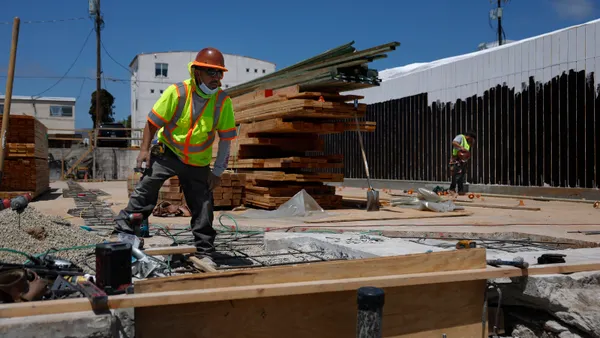CHICAGO — Factors that prove repeatable in contributing to global cities becoming economic powerhouses include infrastructure investments, talent retention, innovation, technology, transparency and increasing levels of education, according to panelists at the Chicago Forum on Global Cities on Thursday.
Leaders try to keep in-check certain factors that could stunt economic growth, such as complacency, lack of affordable housing and inequality. One thing "that really, really worries me is the large divide between the rich and the poor," said Konyin Ajayi, managing partner at law firm Olaniwun Ajayi. "If care is not taken and government doesn't have a targeted approach in bridging that divide," it could lead to instability — both financially and socially.
Panelists also mentioned public-private partnerships, which former U.S. Treasury Secretary Henry Paulson expanded on during a session on green finance. It entails "financing and investment that goes toward sustainable development or low-carbon, clean tech investments," Paulson said. "What we need to see are financing models that attract the private capital to come and make these investments and do it in a way that they're commercially viable."
Several of the speakers stressed the growing importance and challenges associated with talent retention, especially as society becomes more technologically focused. Warsaw, Poland Mayor Hanna Gronkiewicz-Waltz discussed her city's efforts to maintain a high quality of life to keep talent, including modernizing public transit, prioritizing digital innovation and increasing the level of education.
But a problem spreading around the world and being recognized in a plethora of U.S. cities — including Seattle, Denver, Boston and Portland, OR — is the high cost of living, especially the lack of affordable housing. "If we don't rise to that challenge, we could have a serious problem retaining talent," said Will McWilliams, partner at Grant Thornton.
One challenge is keeping up with technology and implementing innovations in a manner that's truly beneficial for residents and forward-thinking for the city's future. "There's a rush to leverage on technology to solve the problems of a city," Ajayi said. "But the fear is a good number of those solutions are solutions for yesterday's problems. There's a big problem of applying supposedly new technology, trying to be innovative, but you're really trapping yourself."
Wise innovation and is something European countries particularly pay attention to because "in Europe about half the GDP is public sector GDP, so procurement is a major economic factor, most of it in the metropolitan areas," said Peter Fatelnig, Minister-Counsellor for Digital Economic Policy, Delegation of the European Union to the United States. He said cities need to ask themselves: "Are we procuring the most efficient, most effective solutions? Are we spending money in the most wise way?"
Paulson noted during his session on green finance that sustainable innovation is smart now and for the future because cities have about two-thirds of the world's population and "cities are going to be the first to feel the impact of sea rise and climate change. There's a lot that cities can do in terms of resilience," Paulson said.
Turning toward green finance "is critically important today because there are huge needs in the world and the governments don't have the funds," Paulson said. On the positive side, "the world is awash in capital" and people looking to make good investments. He points out that cities can attract sch capital with regulatory incentives, subsidies and policies that put a price on carbon.
"We're seeing green finance start to go mainstream in places like China and in Europe," he said. "There's some growing interest in the U.S. If there's not some top-down policies and incentives, we're finding that some institutional investments have programs because they find their clients want them to invest in the projects."
"It all starts with planning. If you don't have the right plan, nothing else really works. So have the right plan at the outset that is built around sustainability," Paulson said.










